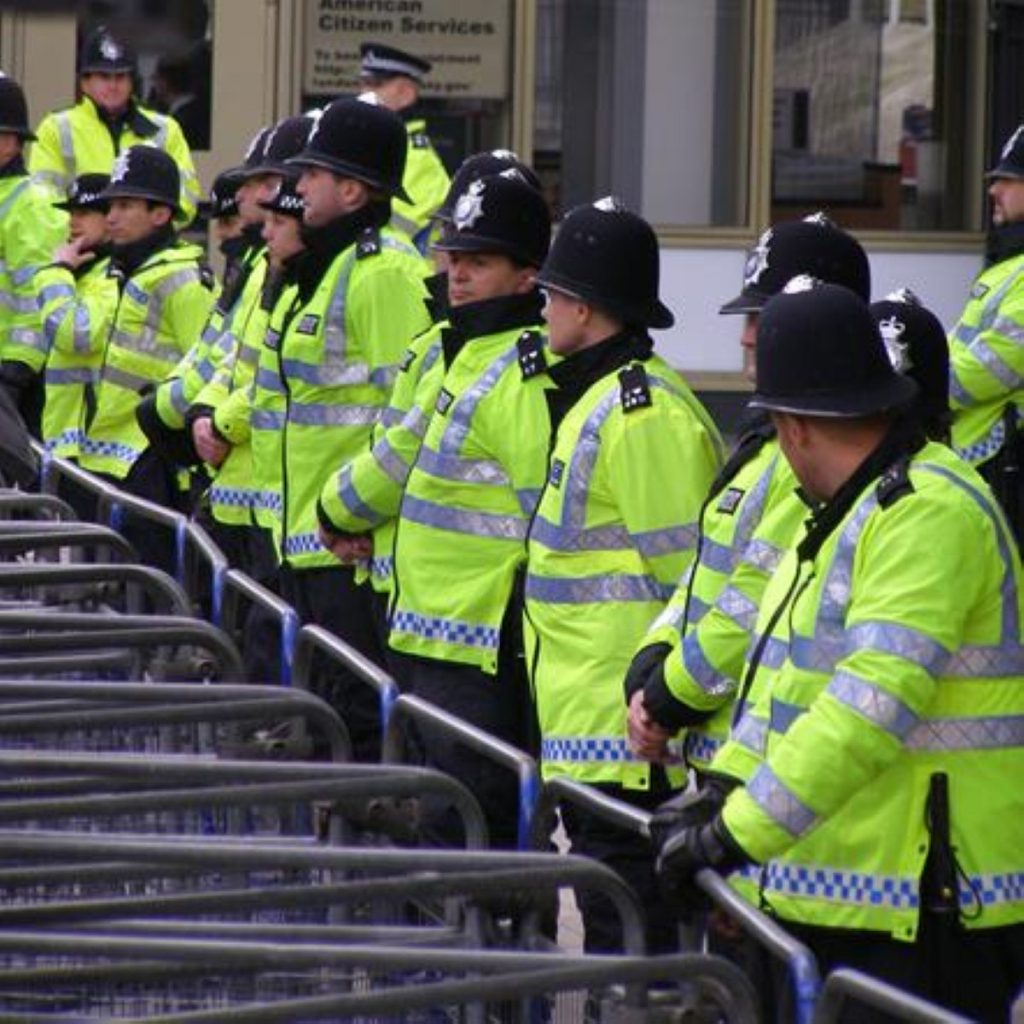PM calls for protest policing debate
By Alex Stevenson
Gordon Brown has used a major speech on crime to call for a “public debate” about the policing of large protests.
In the wake of the G20 demonstrations, in which one passer-by died, the prime minister told police that they should assume “greater responsibility” following central government’s moves to halve paperwork for officers in the last year.
“All of us, and I know this includes the overwhelming majority of police officers themselves, were shocked to see the footage of those incidents during the G20,” he said at a conference held at Chelsea Football Club.


“We should of course remember that policing large protests is difficult and dangerous. I believe it is healthy to have a public debate about how this difficult task can be carried out.”
Last week the Metropolitan police announced commitments to ensure terrorism search powers are not over-used – a move welcomed by Mr Brown.
He said a white paper published this autumn would reassess the issue, alongside wider reforms of the police service.
His comments came as MPs prepared to question senior Met officers about the policing of the G20 in Westminster.
The main thrust of the prime minister’s speech was devoted towards explaining how change is needed to cope with the shifting nature of crime.
He stressed positive notes amid adversity, pressing that “we will never be defeatist either about the economy or about our society”.
And he hailed the government’s efforts to confront knife and gun crime were bringing “results”.
He admitted they remained a “problem, especially in some of our cities”, but said gun crime and knife homicides were falling across the country.
Mr Brown also announced the government’s plans to legislate for a mandatory code on alcohol in the police and crime bill currently working its way through the Commons.
And he announced the burden of proof will be shifted so criminals have to account for their houses, cars and other assets, as well as their cash.
He concluded: “We will stick to our policy of punish and prevent; we will strengthen confidence in every community and together we will build an innovative, personalised and locally accountable neighbourhood policing and justice service. A service that reflects the values of our society, supports its communities and is the envy of the world.”












